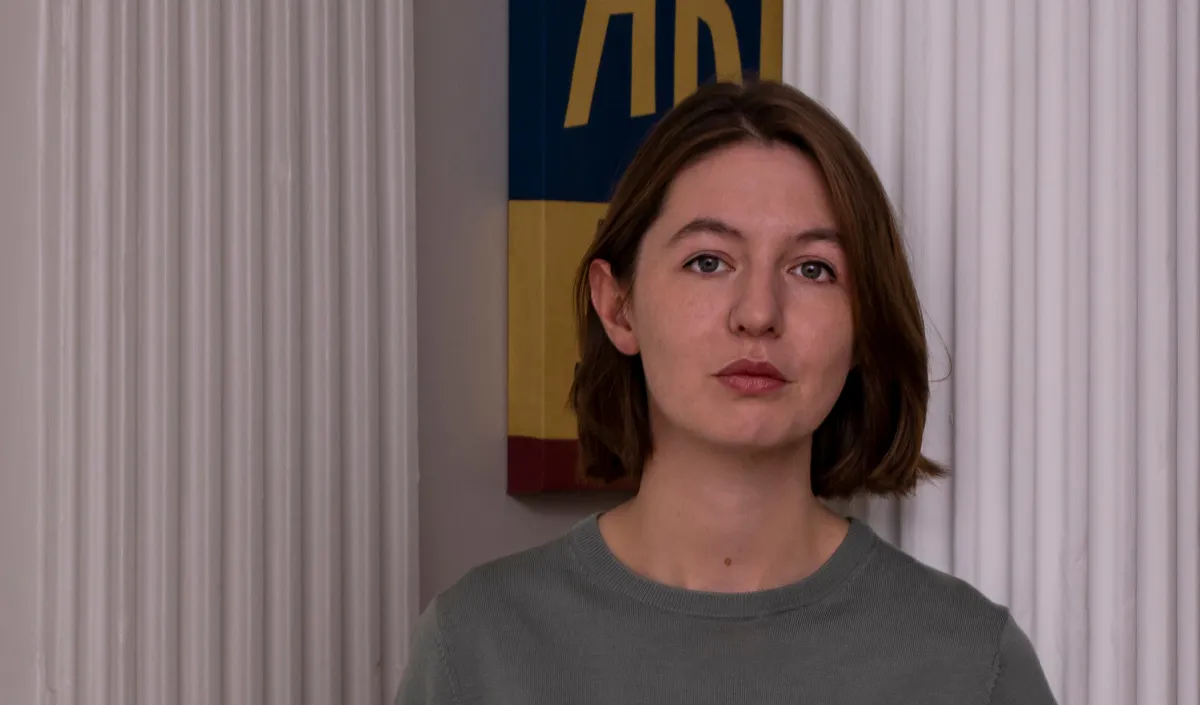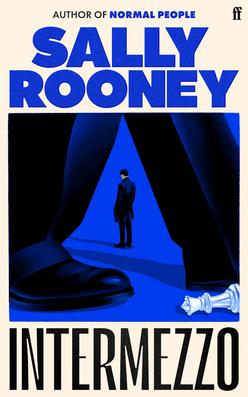Love and unexpected moves in a time of grief

 faber
faberSally Rooney | Intermezzo | faber | 442 pages | 18 GBP
Intermezzo is the fourth novel by Irish author Sally Rooney, and perhaps her most accomplished yet. Having become a global phenomenon after the publication of Normal People in 2018, which won several awards and was longlisted for the Booker Prize that year, and subsequently adapted for television, her novels are much anticipated - she has been hailed as the ‚literary voice of her Millennial generation‘, her writing style often compared to that of the American author J. D. Salinger.
Set between Dublin and a fictional rural West Ireland town, the novel focuses on two grieving brothers, the Koubeks, as they negotiate both their troubled relationship with one another and their respective romantic entanglements, in the aftermath of their father’s death following a long illness. Peter, 32, is a human rights lawyer in Dublin, outwardly successful, suave and socially at ease. Ivan, younger by ten years, is a chess champion and sketchily employed data analyst, all brains and orthodontic braces, and described by his older brother to a girlfriend as „a curio", „kind of autistic“. Their Irish mother and Slovakian father having separated when Ivan was five, he has borne the brunt of the fallout, and it is clear from the start that the brothers do not have the warmest of relationships. Aside from their shared familial background, they do not appear to have a great deal in common, much less any mutual understanding, although both are involved in romantic relationships which could be seen as unconventional. Peter is still in love with an ex girlfriend, Sylvia, a lecturer at a Dublin university who struggles with chronic pain as a result of an accident several years earlier which has left her, among other things, unable to have sex. She had ended their relationship and Peter’s subsequent promiscuity has come to rest with Naomi, a 23 year old student with housing and money problems. Both women are aware of the other, and this love triangle is set against the touching, nascent love between Ivan and Margaret, a 36 year old divorcee who works at a rural arts centre and whom Ivan meets when he attends a chess tournament there.
The ‚action‘, such as it is, takes place over the three months from October to December (the ‚intermezzo‘ or ‚interlude‘ of the title), although the novel, like Rooney’s others, is not plot-driven. Rather, it is a reflection on relationships, both familial and intimate, and the transformative nature that they can have. Relationships in all their gritty detail, however; the misunderstandings, the communicative near misses, the small atrocities we commit - even unconsciously - against those we love, and the simple joy of being with exactly the right person, even just for that moment. Intermezzo is also a chess term (‚Zwischenzug’ in german ) meaning an ‚in-between move‘ or an unexpected move which forces your opponent to take immediate action. Rooney’s characters are manoeuvred masterfully, sometimes closer, sometimes further away, in an agonising game of power, loss and unpredictable moves.
All the usual Rooney elements are at play here - intense, unequal relationships, absent fathers, digressions on the Dublin rental market, capitalism and feminism - but her big departure in Intermezzo is the focus on two male siblings, a move away from her usual female protagonists. Another noticeable difference is the apolitical nature of this novel’s characters, at least in terms of their words. Whatever political ideals they may have tend to be acted out rather than voiced (Peter advocating for workers rights, Ivan boycotting flying for environmental reasons etc), unlike characters in her previous novels, who are quite frequently to be heard pontificating politically. This is interesting in light of Rooney’s political leanings - she is a self professed Marxist and feminist, who refused to sell Hebrew translation rights to her last book (Beautiful World, Where Are You) due to her stance on the Israel/Palestine conflict, and who has very recently signed a letter, along with over 1000 other writers and publishing professionals, pledging to boycott Israeli cultural institutions that „are complicit or have remained silent observers of the overwhelming oppression of Palestians“. Perhaps she avoids depicting any real-life class struggles for fear of alienating her mainstream audience? In any case, if you were hoping for any of Rooney’s typical dabbling with political discourse, you may find it sorely lacking within these pages.
What you will find is a deep dive into grief, love and loss as experienced by the two brothers, as well as, to some extent, the supporting female characters. One of Rooney’s great strengths is how fully she is able to flesh out her characters, without balking at problematic, painfully real or plain boring elements -a master of realist literature; the real, the tangible, the thoughts and feelings behind everyday people. She uses a series of third person interior monologues for Peter, Ivan and Margaret, which spill across the pages in a stream of consciousness, a seamless flow of thought and speech (no speech marks). Peter’s segments are somewhat fragmentary, rather Joycean in style, reminiscent of the great Irish author’s Portrait of the Artist as a Young Man. Being party to his clashing, half-finished thoughts and muddled syntax can start to feel uncomfortable, mentally exhausting, and I found myself, like Peter, wanting to reach for the Xanax. Ivan’s inner world, by contrast, is awkward and earnest, constantly questioning, wondering what ‚normal people‘ would do, feeling that he exists only in his head and that his body is simply a necessary encumbrance (until, of course, it comes to physical relations: sex, in other words, of which there is plenty, as one would expect and perhaps hope for in a Rooney novel. She wants us to feel completely immersed in her characters, and has said that to put a ‚No Entry‘ sign on the bedroom door would in effect be closing off a huge, integral part of their lives to us. So, almost duty bound to let us in, she manages to be explicit without being ‚smutty‘, brilliantly capturing the intimacy between the characters). Both Ivan and Margaret - with her calm, kind, grounded nature and her attention to quiet beauty - are easier to sit with; you feel a sense of calm, and their segments are almost a salve to Peter’s chaos.
Rooney’s characters are not always particularly likeable but they are usually sympathetically drawn. I found myself quickly developing empathy for both Ivan and Peter and desperately wanting them to find a way through their grief and towards each other. The compassion with which Rooney captures this brief period in their lives is moving, full of humanity and ultimately heartwarming - the ‚interlude‘ doesn’t really end; there is optimism, a sense of the clouds lifting, but no resolution as such. For anyone interested in the inner workings of peoples‘ minds, human connection and the complexities of negotiating love and grief, this book is a must-read.



